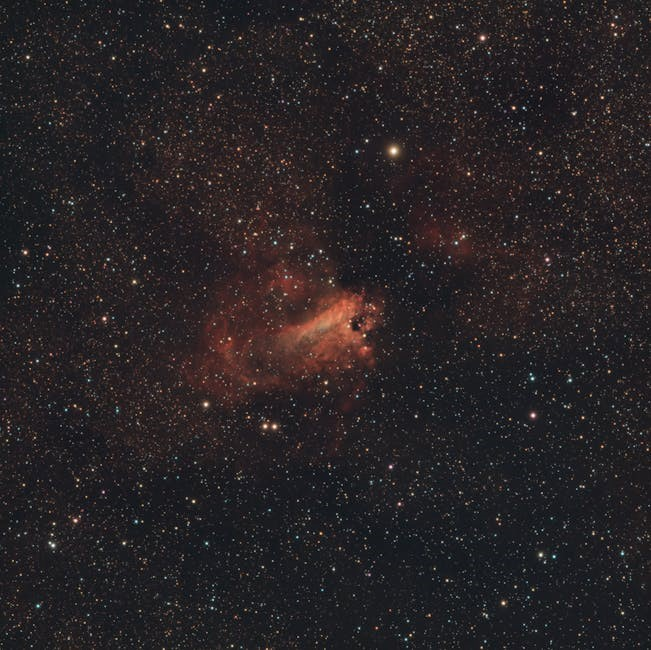Douglas Adams’ The Hitchhiker’s Guide to the Galaxy is a comedic sci-fi novel that follows the misadventures of Arthur Dent and Ford Prefect as they navigate the galaxy after Earth’s destruction.
Overview of the Novel and Its Significance
The Hitchhiker’s Guide to the Galaxy is a groundbreaking comedic science fiction novel by Douglas Adams, first published in 1979. It blends humor, satire, and intellectual themes to explore the absurdity of life and the universe. The story follows Arthur Dent, an ordinary man, and his alien friend Ford Prefect as they travel through space after Earth’s destruction to make way for a hyperspace bypass. The novel is the first in a series of five, known collectively as “The Hitchhiker’s Guide to the Galaxy.” Its significance lies in its unique approach to science fiction, combining witty dialogue, clever plot twists, and philosophical questions about existence. The book’s satirical take on bureaucracy, technology, and human nature resonated with readers worldwide, making it a cult classic. Its influence extends beyond literature, inspiring adaptations in radio, television, and film, cementing its legacy as a cornerstone of modern science fiction and comedy.

Background and Creation of the Novel
Douglas Adams conceived The Hitchhiker’s Guide to the Galaxy as a radio comedy series for BBC Radio 4 in 1978, later adapting it into a novel in 1979. Its unique blend of humor and sci-fi originated from Adamss work on Monty Python’s Flying Circus and his passion for satire.
Douglas Adams and the Origins of the Story
Douglas Adams, a British writer and humorist, first conceptualized The Hitchhiker’s Guide to the Galaxy as a radio series in 1978. Born on March 11, 1952, in Cambridge, England, Adams began his career writing for Monty Python’s Flying Circus, which heavily influenced his comedic style. The idea for the novel emerged during his travels, where he humorously pondered the notion of a guidebook for interstellar hitchhikers. Adams’ unique blend of science fiction and absurd humor revolutionized the genre, making the series an instant hit. The radio series was later adapted into a novel in 1979, expanding on the quirky characters and satirical themes. Adams’ work on Doctor Who also shaped his storytelling approach, blending wit with intricate plotlines. His legacy endures as a pioneer in comedic science fiction, inspiring countless authors and comedians.

Major Themes and Satirical Elements
The novel explores themes of existential absurdity, questioning authority, and the meaninglessness of life. It satirizes bureaucracy, technology, and humanity’s arrogance, blending humor with philosophical reflections on the universe’s chaos and unpredictability.
The Absurdity of Life and the Universe
Douglas Adams’ The Hitchhiker’s Guide to the Galaxy masterfully explores the absurdity of life and the universe, blending humor with existential philosophy. The novel begins with Earth’s demolition to make way for a hyperspace bypass, highlighting the cosmic indifference to human existence. Adams uses satire to mock humanity’s arrogance, as characters like Arthur Dent struggle to comprehend the vast, often illogical nature of the universe. The search for the “Ultimate Answer to Life, the Universe, and Everything” by the supercomputer Deep Thought, which takes 7.5 million years to compute, only to reveal the answer as “42,” underscores the futility of seeking meaning in an seemingly meaningless cosmos. Through absurd scenarios, such as the Vogons’ bureaucratic destruction of planets or Zaphod Beeblebrox’s carefree recklessness, Adams critiques the human condition, emphasizing that life’s irrationalities are both terrifying and comical. This theme resonates throughout the novel, leaving readers to ponder the absurdity of their own existence within an infinite, chaotic universe.

Character Analysis
The novel introduces a diverse cast of characters, including Arthur Dent, the relatable human protagonist, Ford Prefect, his alien friend, Zaphod Beeblebrox, the eccentric president, Marvin, the depressed robot, and Trillian, the intelligent human woman. Each character’s unique traits and interactions drive the story’s humor and philosophical themes, exploring human nature and the universe’s complexities through their adventures.
Arthur Dent and Ford Prefect: The Core Protagonists
Arthur Dent, an ordinary Earthman, and Ford Prefect, his alien friend, form the heart of the story. Arthur’s journey begins with his house being demolished and Earth’s destruction, leading to his escape with Ford. Ford, an undercover alien researching Earth for the Hitchhiker’s Guide, remains calm and resourceful, guiding Arthur through the chaos. Their friendship is central to the narrative, with Arthur’s disbelief and Ford’s pragmatic humor driving their interactions. The duo’s dynamic evolves as they face absurd situations, showcasing Arthur’s eventual resilience and Ford’s unwavering optimism. Together, they embody the novel’s themes of survival and camaraderie in an unpredictable universe. Their contrasting personalities create a balance, making them relatable and endearing to readers. Through their adventures, Adams explores the human condition and the challenges of navigating the unknown, with Arthur and Ford serving as the emotional core of the story.

Detailed Chapter Summary
The novel begins with Earth’s destruction to make way for a hyperspace bypass. Arthur Dent, rescued by his friend Ford Prefect, hitchhikes through space, encountering bizarre worlds and characters.

Key Plot Points and Chapter Highlights
The story begins with Earth’s demolition to build a hyperspace bypass, and Arthur Dent, a hapless human, is rescued by his friend Ford Prefect, an alien researching Earth for the Hitchhiker’s Guide to the Galaxy. They hitch a ride on a passing spaceship, narrowly escaping Earth’s destruction; The novel progresses as Arthur and Ford travel through space, encountering bizarre worlds and characters. A key plot point involves the supercomputer Deep Thought, which reveals the “Answer to the Ultimate Question of Life, the Universe, and Everything” as 42. The duo later visits Magrathea, where Earth’s replacement is being built, and confronts the Vogons, whose appalling poetry highlights the absurdity of the universe. The Heart of Gold spaceship, powered by an Infinite Improbability Drive, introduces Zaphod Beeblebrox, the two-headed president of the galaxy, and Trillian, a human woman who survived Earth’s destruction. Together, they embark on a chaotic journey filled with humor and satire, exploring themes of existence and the meaninglessness of life. The narrative is filled with witty dialogue and absurd situations, making it a timeless classic in science fiction comedy.

Cultural Impact and Legacy
The Hitchhiker’s Guide to the Galaxy has had a profound impact on pop culture, inspiring films, TV series, and radio adaptations. Its witty humor and unique blend of sci-fi and comedy have made it a cult classic, celebrated globally. The book’s legacy includes the creation of Towel Day, an annual tribute to Douglas Adams, and its influence on countless authors and comedians. Its themes of absurdity and satire continue to resonate, cementing its place as a landmark in science fiction literature.
Influence on Pop Culture and Science Fiction
The Hitchhiker’s Guide to the Galaxy has left an indelible mark on pop culture and science fiction. Its unique blend of humor, satire, and imaginative storytelling has inspired countless authors, comedians, and creators. The novel’s radio, TV, and film adaptations have further cemented its place in global culture. Themes like the absurdity of life and the search for meaning have resonated widely, making it a cult classic. The book’s influence extends to comedy, with its dry wit and clever wordplay setting a new standard. Additionally, it has spawned fan-driven traditions, such as Towel Day, celebrated annually on May 25, honoring Douglas Adams and the book’s iconic advice to always carry a towel. Its impact on science fiction is undeniable, challenging traditional genre norms and paving the way for more humorous and satirical works. The novel’s legacy continues to inspire new generations, solidifying its role as a groundbreaking and enduring work of science fiction.
